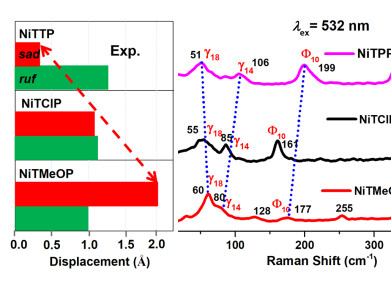Mass spectrometry & spectroscopy
7 Uses of NMR Spectroscopy
Oct 09 2021
Scientists utilise a myriad of techniques to study the molecular properties of matter, and when it comes to useable data Nuclear Magnetic Resonance (NMR) Spectroscopy is one of the most valuable. The advanced analytical technique allows researchers to study the unique chemical, physical and biological characteristics of a molecules, with the method used across a wide range of fields and professions. Read on to find out more about the different used of NMR Spectroscopy.
-
Chemistry laboratories
Chemists rely on NMR Spectroscopy as a tool to chart the complex molecular structures of matter. The technique sees samples placed in a specialised NMR spectrometer, where it’s exposed to a strong magnetic field. The gravitational pull generated by the field excites the nuclei of some atoms and creates resonant frequencies. These resonant frequencies are then tracked, measured and used to generate useful data.
-
Food quality control and research
Before hitting the consumer market, foods undergo strict quality control and research studies. NMR Spectroscopy is widely used across the industry to map protein structures, profile amino acids, identify carotenoids and quantify metabolites.
-
MRI scans
Most people are familiar with Magnetic Resonance Imaging (MRI) scans which use powerful magnetic fields and radio waves to reveal detailed images of the internal organs. Data is generated based on rates of absorption and energy emission recorded in the radiofrequency (RF) range. The medical imaging technique is founded in NMR Spectroscopy and uses the same basic principles.
-
Identifying human disorders
When used alongside metabolomics data, NMR Spectroscopy is an invaluable tool for identifying human disorders. The cellular metabolism contains important biomarkers used to diagnose a wide range of conditions, including tuberculosis, pneumonia and malaria. NMR Spectroscopy allows researchers to identify these tell-tale biomarkers and treat patients accordingly. The technique can also be used to investigate Parkinson’s disease, as well as cardiovascular diseases and a range of neuropsychiatric disorders such as bipolar, schizophrenia, major depression and autism-spectrum disorders.
-
Cancer diagnosis
Over the past few decades, NMR Spectroscopy has become a key technique for cancer diagnosis. The ability to analyse abnormal behaviour in the cellular metabolism allows scientists to detect the metabolite-based biomarkers associated with cancers.
-
Environmental monitoring
It’s not just the medical field where NMR Spectroscopy is considered a valuable tool, with the technique also used for environmental monitoring. Spectrometers are used to detect and characterise contaminants in air, soil and water samples as well as monitor the metabolic responses of organisms exposed to these contaminants.
-
Drug discovery and development
From trialling new cancer therapies to perfecting nutritional supplements, NMR Spectroscopy is a mainstay in the drug discovery and development arena.
Dr Robin J. Blagg, a representative from UK-based manufacturing and research company Oxford Instruments, offers more information on the latest NMR Spectroscopy techniques and instruments in ‘X-Nuclei NMR Spectroscopy’.
Digital Edition
ILM 50.2 March 2025
March 2025
Chromatography Articles - Effects of small deviations in flow rate on GPC/SEC results Mass Spectrometry & Spectroscopy Articles - Waiting for the present to catch up to the future: A bette...
View all digital editions
Events
Apr 02 2025 Saigon, Vietnam
Apr 09 2025 Tokyo, Japan
Apr 22 2025 Hammamet, Tunisia
Apr 22 2025 Kintex, South Korea
Analytica Anacon India & IndiaLabExpo
Apr 23 2025 Mumbai, India




















